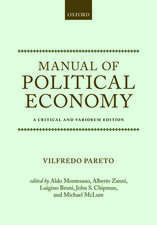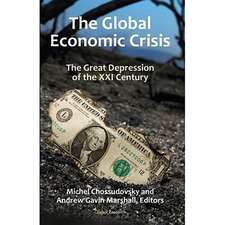Hall of Mirrors: The Great Depression, the Great Recession, and the Uses-and Misuses-of History
Autor Barry Eichengreenen Limba Engleză Paperback – 24 noi 2016
| Toate formatele și edițiile | Preț | Express |
|---|---|---|
| Paperback (1) | 93.94 lei 32-37 zile | |
| Oxford University Press – 24 noi 2016 | 93.94 lei 32-37 zile | |
| Hardback (1) | 141.61 lei 32-37 zile | |
| Oxford University Press – 22 ian 2015 | 141.61 lei 32-37 zile |
Preț: 93.94 lei
Preț vechi: 106.63 lei
-12% Nou
Puncte Express: 141
Preț estimativ în valută:
17.98€ • 19.22$ • 14.99£
17.98€ • 19.22$ • 14.99£
Carte tipărită la comandă
Livrare economică 07-12 aprilie
Preluare comenzi: 021 569.72.76
Specificații
ISBN-13: 9780190621070
ISBN-10: 0190621079
Pagini: 520
Dimensiuni: 155 x 231 x 33 mm
Greutate: 0.79 kg
Editura: Oxford University Press
Colecția OUP USA
Locul publicării:New York, United States
ISBN-10: 0190621079
Pagini: 520
Dimensiuni: 155 x 231 x 33 mm
Greutate: 0.79 kg
Editura: Oxford University Press
Colecția OUP USA
Locul publicării:New York, United States
Recenzii
This is undoubtedly one of the best books on the history of economic policy-making to be published in the last half century. .. clear, compelling account of the Great Depression and the Great Recession.
Notă biografică
Barry Eichengreen is Professor of Economics and Political Science at the University of California, Berkeley. His previous books include Hall of Mirrors: The Great Depression, The Great Recession, and the Uses-and Misuses-of History, Exorbitant Privilege: The Rise and Fall of the Dollar and the Future of the International Monetary System and Golden Fetters: The Gold Standard and the Great Depression, 1919-1939.













